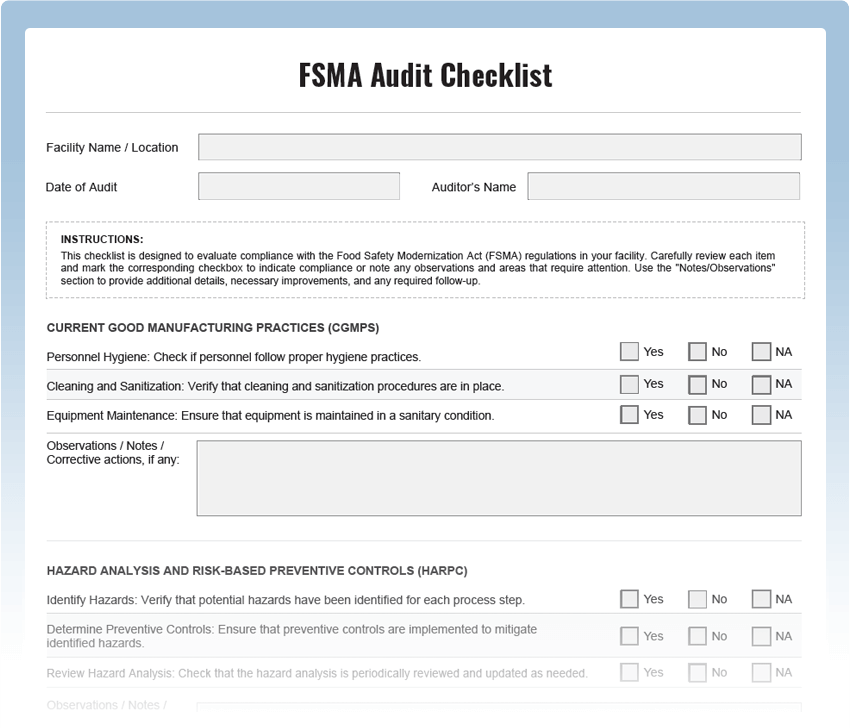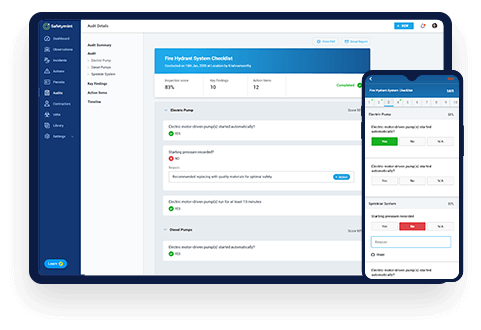FSMA Audit Checklist
Ensure compliance with the Food Safety Modernization Act (FSMA) with our comprehensive FSMA Audit Checklist Template. This free PDF template covers all critical aspects of FSMA compliance, empowering food manufacturers and processors to identify potential gaps, conduct thorough audits, and maintain the highest standards of food safety.
Digitize this Checklist on Safetymint
- Create unlimited, customized checklists
- Add Actions, with automated reminders
- Works seamlessly with or without internet
- Access via web browsers, mobile or tablets

What is an FSMA Audit Checklist Template?
An FSMA Audit Checklist Template is a systematic tool used to assess the implementation of food safety practices and compliance with FSMA regulations. It includes a series of checkpoints designed to inspect various aspects of food safety, such as preventive controls, hazard analysis, record-keeping, supplier verification, and more. Regular FSMA audits are essential for ensuring the safety of food products, protecting consumers, and meeting regulatory requirements.
Key Areas to Inspect in an FSMA Audit Checklist:
- Preventive Controls: Verify the implementation and effectiveness of preventive controls for identified hazards.
- Hazard Analysis: Assess the identification and analysis of potential food safety hazards.
- Supply Chain Controls: Review supplier verification procedures and documentation.
- Sanitation and Hygiene: Ensure proper sanitation and hygiene practices are followed.
- Record-Keeping: Evaluate the accuracy and completeness of required records.
- Allergen Control: Verify measures in place to prevent allergen cross-contamination.
- Training and Education: Assess the training of personnel in food safety practices.
Common FSMA Audit Findings:
Frequent issues found during FSMA audits include:
- Inadequate Preventive Controls: Insufficient measures to prevent hazards in food processing.
- Poor Record-Keeping: Missing or inaccurate records related to food safety practices.
- Lack of Supplier Verification: Incomplete supplier verification for raw materials.
FSMA Audit Best Practices:
- Scheduled Audits: Conduct routine FSMA audits at scheduled intervals and after process changes.
- Compliance Review: Regularly review and update food safety programs to meet FSMA requirements.
- Employee Involvement: Involve employees in implementing and maintaining food safety practices.
- Continual Improvement: Address audit findings and continuously improve food safety procedures.




